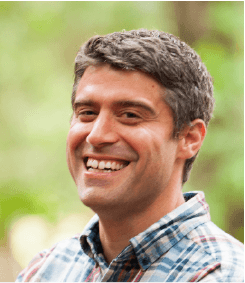 Assistant Professor
Assistant Professor
Environmental & Forest Sciences
College of the Environment
University of Washington Seattle, WA
bratman@uw.edu
Fellowship Project: Nature exposure, mental health, and equity: a multi-method approach
Gregory Bratman is the Doug Walker Endowed Assistant Professor of Nature, Health, and Recreation in the School of Environmental and Forest Sciences at the University of Washington, where he also works with EarthLab’s Nature for Health – a group of collaborators that work to put science into practice in ways that benefit underserved and other populations. This includes leading a project in which he examines the ways in which wilderness experience may help veterans with PTSD; investigating ways to reduce inequities in health through increased access to nature for underserved populations; and looking to build community partnerships in the greater Seattle area.
Gregory’s work takes place at the nexus of psychology, public health, and ecology. His research focuses on examining the ways in which nature experience benefits aspects of mental and physical health. Through empirical and theoretical approaches, he seeks to understand the causal mechanisms that underlie the association of nature contact with cognitive function, mood, and other aspects of health, particularly in urban environments. Gregory employs a variety of methods -such as functional magnetic resonance imaging, psychophysiology, and behavioral assessments- to characterize and develop theoretical models for how people react to their environments, and are influenced by them. He is also working to incorporate the mental health benefits of nature experience into the paradigm of ecosystem services, through the development of a framework that outlines this process.
Gregory earned his PhD from Stanford University, where he was a student in the Emmett Interdisciplinary Program on Environment and Resources. He continued his work at Stanford as a postdoctoral researcher before coming to the University of Washington in the Fall of 2017. He teaches classes on nature and health, wildland recreation, and science communication.